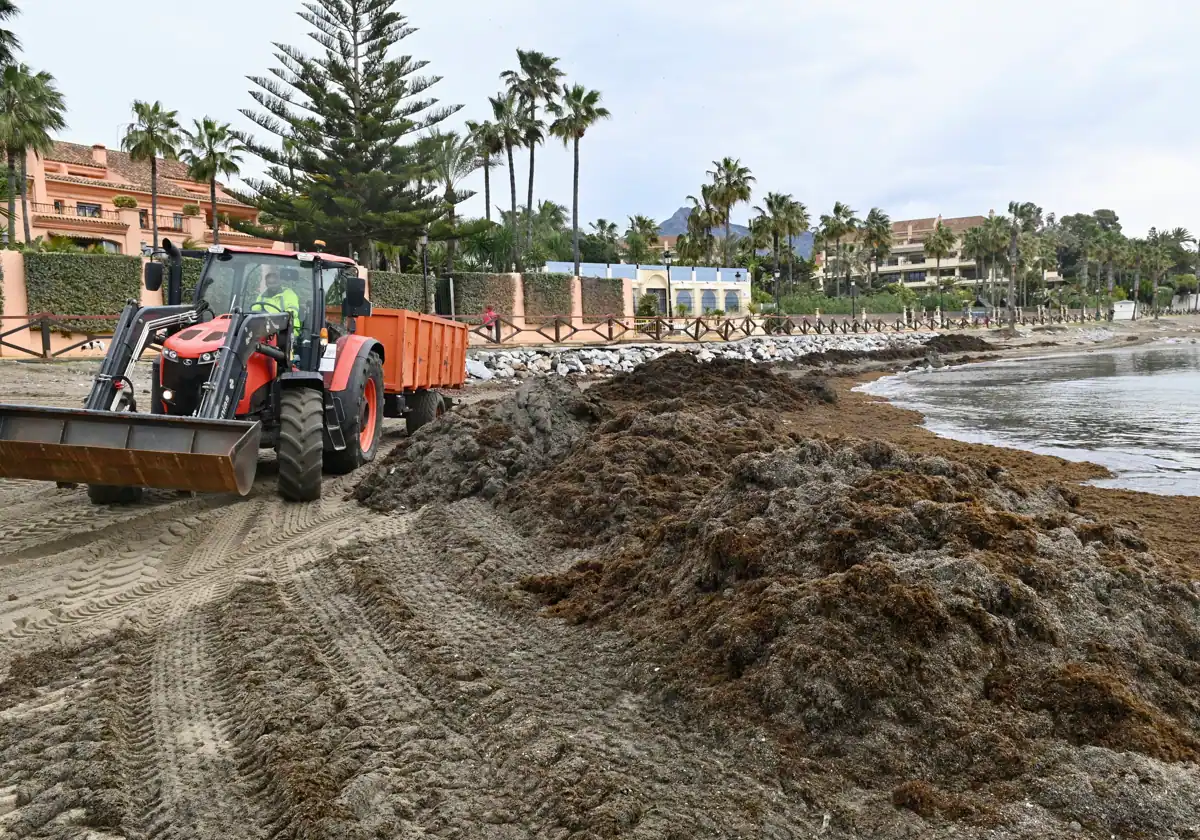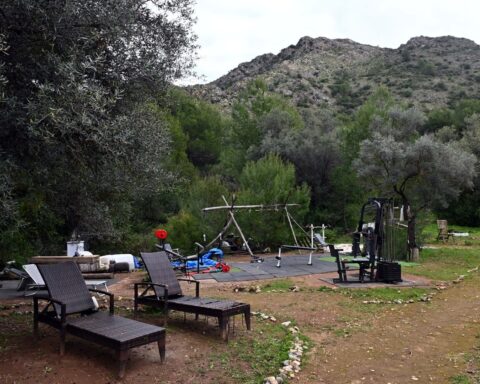Costa del Sol Beaches Under Threat from Invasive Algae
Local councils on the Costa del Sol are growing increasingly concerned about the escalating presence of an invasive algae on their beaches. They are calling on Spain’s national government for assistance as the situation with the Rugulopteryx okamurae algae worsens. Town halls are currently shouldering the burden of combating the problem using their own resources, a task that is proving to be costly.
Marbella Council Invests Heavily in Algae Removal
In Marbella alone, the council has already spent over 800,000 euros this year to remove 75 tonnes of the algae from the beaches daily. Councillor Diego López has expressed concern over the damage the situation is causing to the fishing, tourism, and environmental sectors. He also criticized the Spanish government for not taking strategic action or offering practical solutions to the councils.
Algae Invasion Affects Key Beaches
The invasive algae is particularly impacting the beaches of San Pedro Alcántara, Puerto Banús, Fontanilla, and Cabopino, where the aquatic plants can grow over one metre in height. These plant remains, found in all coastal municipalities along the Andalusian coastline, were added to the European Union’s list of species of concern in 2022.
Estepona Calls for National Aid Plan
Estepona shares the same concerns. Mayor José María García Urbano has repeatedly requested a national aid plan from the central government for the affected coastal municipalities. The algae’s proliferation negatively impacts both the tourist and fishing sectors, and the town councils are left to use their own resources to mitigate the effects.
Mijas and Benalmádena Also Affected
Mijas is another municipality affected by the massive influx of the invasive algae. Councillor Daniel Gómez stated that in 2023 alone, they collected 4,000 tonnes of algae and spent 380,000 euros. The recent storm has caused the algae to invade municipalities like Benalmádena, which have not been so affected in recent years. The council estimates that they will need to collect about 70 tonnes of algae from their beaches this week alone.







